Federal Communications Commission Chairman Julius Genachowski made news today at the Brookings Institution by announcing plans to expand so-called “net neutrality” rules for Internet providers. Before a packed auditorium filled with media, consumer organizations, company representatives and a nationwide webcasting audience, he proposed that the FCC add two rules to the principles already adopted by the Commission in 2005.
Those principles gave consumers the right to “choose content, applications, services, and devices”. The chairman advocated an anti-discrimination rule that would prevent Internet providers from blocking or slowing the utilization of competing services, and a transparency rule that would require providers disclose how they manage traffic.
In addition, the Chairman said he wanted all six neutrality principles to be adopted as formal FCC rules, not just enforcement guidelines, and to extend to any Internet service, even if delivered over wireless networks. The latter represents the first time a FCC chairman has expressed support for expanding these rules to mobile providers.
I recently completed a study of consumer views about mobile communications released last week and found that 80 percent of American cell phone users want to choose their mobile applications. However, only 26 percent say they actually have downloaded applications to their cell phones. When asked the reason for not downloading applications, 37 percent indicated they were not interested in new applications, 16 percent cited cost, 13 percent claimed new applications were not available on their device, and only 1 percent named service provider restrictions as the reason for not having done so. Thirty-three percent of mobile users said they were willing to pay more to control their cell phone applications.
Following Genachowski’s speech, there was a vigorous debate over the need for and impact of the proposed rules. Some people worried that rising levels of downloaded music, video, and games would slow network traffic and create digital traffic jams for other users. Seeking to deal with this problem, the Chairman’s proposal appears to allow network operators to employ “reasonable network management” techniques to deal with viruses, spam, intellectual property issues, and other deleterious activities, as long as they disclose how they manage traffic.
Another complicated question facing the FCC involves premium services. Under the new rules, will it be possible for a firm offering downloaded music, video, or games to pay Internet providers more money to deliver their product more speedily? The ultimate answer to that question is not resolved. But the Chairman’s proposal appears to allow some type of premium services as long as existing sites not paying the extra fee remain available to consumers.
Judging from the attendance, there is tremendous interest in how these proposals get implemented. The FCC has set up a new website called OpenInternet.Gov where people can offer their opinions. Look for that site to fill up rapidly with comments from folks from a variety of perspectives.
Watch FCC Chairman Julius Genachowski’s remarks and our Panel Discussion »
The Brookings Institution is committed to quality, independence, and impact.
We are supported by a diverse array of funders. In line with our values and policies, each Brookings publication represents the sole views of its author(s).
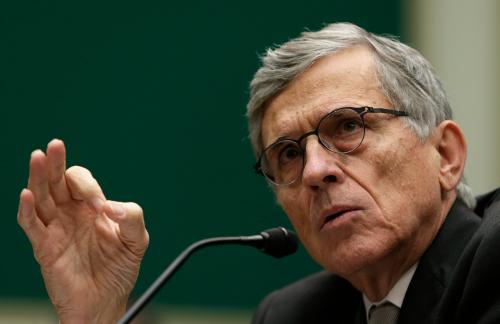
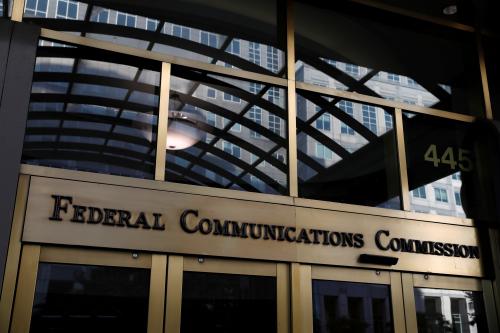
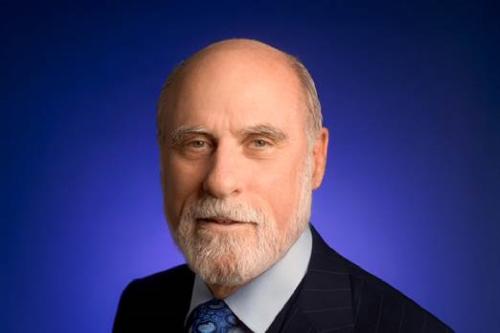
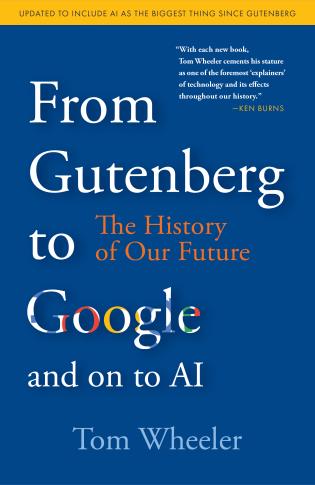
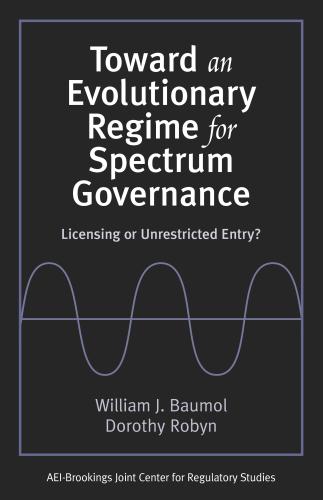



Commentary
FCC Chairman Proposes New Net Neutrality Plans
September 21, 2009